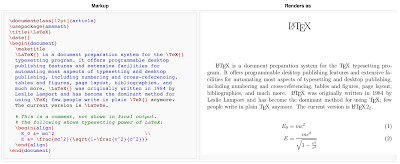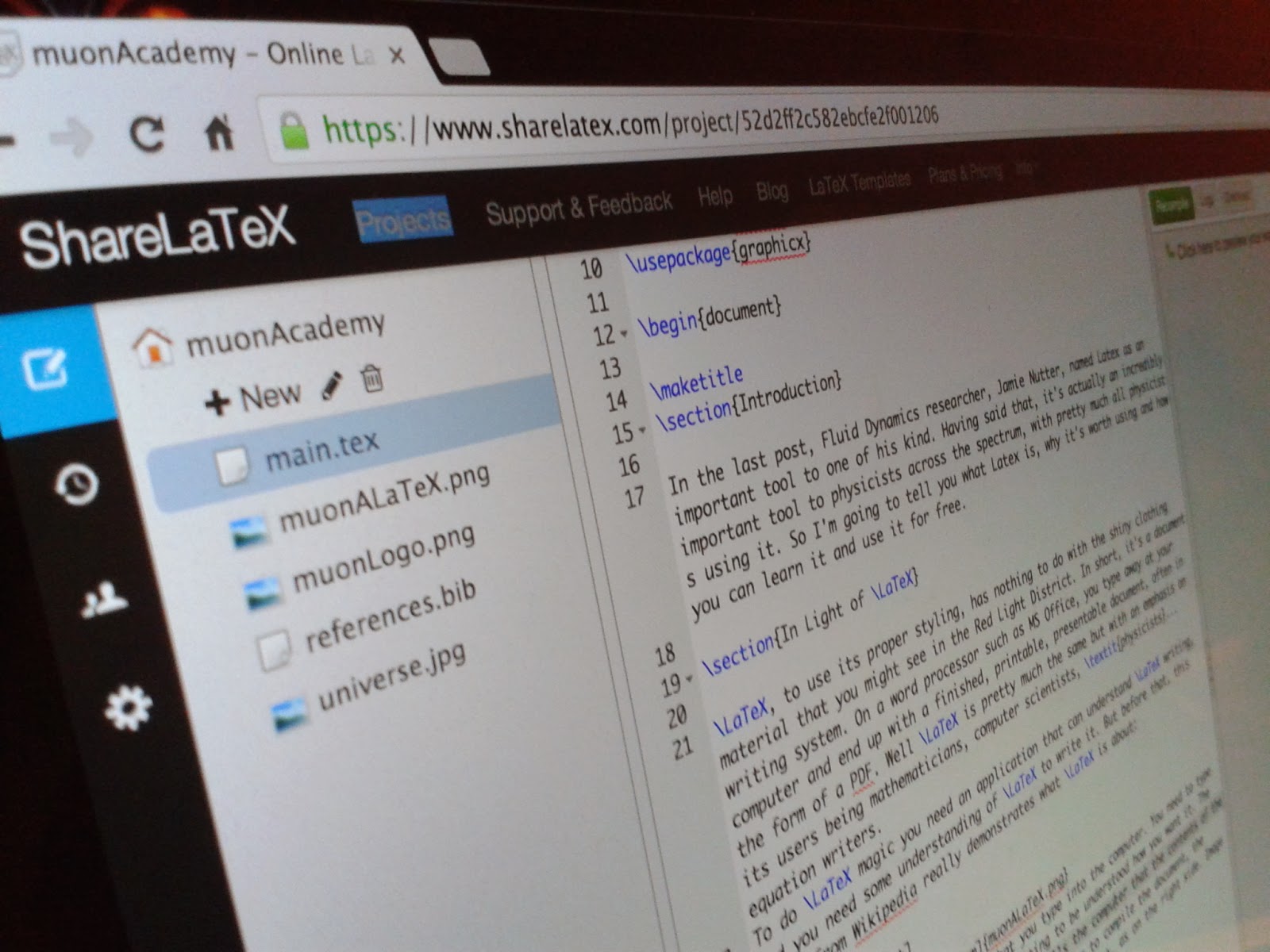In the last post, Fluid Dynamics researcher, Jamie Nutter, named Latex as an important tool to one of his kind. Having said that, it's actually an incredibly important tool to physicists across the spectrum. Pretty much all physicists use it. So I'm going to tell you what Latex is, why it's worth using and how you can learn it and use it for free.
 |
| For research purposes... |
In Light of LaTeX
LaTeX, to use its proper styling, has nothing to do with the shiny clothing material that might give you a peculiar Google search. In short, it's a document writing system. On a word processor such as MS Office, you type away at your computer and end up with a finished, printable, presentable document, often in the form of a PDF. Well LaTeX is pretty much the same but with an emphasis on its users being mathematicians, computer scientists,
physicists... people who want equations on screen.
LaTeX's forte is getting equations into a document.
To do LaTeX magic you need an application that can understand LaTeX writing, and
you need some understanding of LaTeX to write it. But before that, this image from Wikipedia really demonstrates what LaTeX is about:
 |
| The left side shows what you type into the computer. You need to type in the LaTeX commands for your writing to be understood how you want it. The line that say "\title{...}" tells the computer that the contents of the braces are the document title. After clicking to compile the document, the computer uses the commands and gives you a PDF out, as on the right side. Image from Wikipedia. |
LaTeX Applications
To get started using LaTeX, you need to first get an application to do. Here's two good applications that you can install and run on your computer:
- TeXMaker
- TeXShop.
However, you might be on someone else's computer or device like a Chromebook. For this situation you can you use
ShareLaTeX which runs in your browser. It allows you to login into its website, write and compile multiple LaTeX projects, share projects and has a nice interface.
 |
| I had a little play at making this post on ShareLaTeX and that's what it looks like as you do. |
In Search of Instructions
The best way to learn LaTeX is by doing it. Of course there are places where you can get instructions, but they are usually only good for reference. The following website is a really good reference that I run crying to at least once a week:
However, if you need something you can download, here is a PDF on LaTeX form Oxford:
There are lots more PDFs out there, however they are all pretty much the same. If you ever get a problem in LaTeX,
StackExchange has a section just for LaTeX. I often end on there when I get stuck. It's also pretty helpful to have a list of the
common symbols in LaTeX, like the one in that link just there.
In Limine LaTeX
A few lines back I said "the best way to learn LaTeX is by doing it", but the best way to do
that is via an example.
So I have made this blog post into a TeX document just for you* (which explains the variety in layout). I made it in TeXShop. Get it in the
link at the end!
Vive la révolution.
LearnLaTeXParadigm.tex
The following is a link to this post as a LaTeX document
on Google Drive.
*
Especially for you from the muon Academy!









